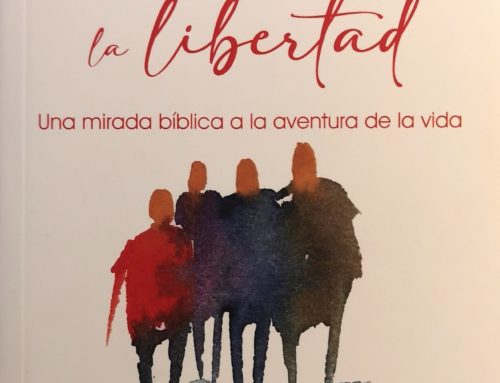Before he died Our Lord celebrated one last meal with his disciples, a happy festive meal, in Jerusalem. Today the site is identified also with the room where the Holy Spirit descended on them at Pentecost. But seemingly only the Twelve were present at the Last Supper. We just do not know.
The Last Supper Setting
Jesus must have had a friend in the city rich enough to provide him with a special room that could accommodate his group for a leisurely meal- like a paschal meal. If current archaeological research on the site is correct then they were accommodated in the rich part of Jerusalem, now called Mt.Sion, not too far from the palaces of the High Priests and Herod and Pilate. The participants were able to recline, not just sitting upright at table as was normal for other occasions. This festive meal would have lasted a long time. It was a privileged experience in every sense, with a wonderful leader, on this the principal religious holiday in their calendar year, the Pasch itself or the Eve of the Pasch. They had every reason then for celebrating a lovely evening.
Ritual
All meals were sacred for the Jews and ritual especially characterised the paschal meal. Probably most civilisations world-wide follow like meal rituals, especially on festive occasions. Somebody leads or presides, and prays and the rest join in. Our texts this evening accentuate certain aspects of that formal ritual operative in Palestine then. Jesus acted like the father of the family, and he would probably have organised the reclining order for the participants, leaning on their left arm as they chatted to their neighbour. Then a most unexpected incident occurred: the Washing of the Feet (Jn 13). This had never been a part of any major formal meal, and least of all in a paschal context. Feet washing normally took place on entering a house; water was provided for self-service, except for the very rich, when a slave took care of it. The action of Jesus gives the apostles a lesson in humility and love; it was a parable in action. It was a unique historical experience created by someone they loved and revered.
Developing Consciousness
Later it would become a ritual procedure to encourage a right attitude for Christians living together. It came to be practised very widely, East and West, by Catholics, Orthodox and Protestants. “At one time, most of the European monarchs also performed the Washing of Feet in their royal courts on Maundy Thursday, a practice continued by the Austro-Hungarian Emperor and the King of Spainup to the beginning of the 20th century” (Wikipedia: Foot washing RC practice). So much for ritual! But it was inserted into the revised liturgy of the Mass for Holy Thursday by Pope Pius XII in 1955. With Pope John XXIII, after 1958 it became a ‘wake up’ call for Catholic conscience. His successors have washed prisoners’ feet. This is not a purely ritualistic exercise, for these men and women are really behind bars. Now this symbol of love in action addresses the often appalling conditions of many of these unfortunates. With this symbol Catholic social conscience is being honed ever more sensitively.
Back to the Beginning
Jesus that night in Jerusalem knew that he would soon be a prisoner, and nearly all the apostles would later suffer the same indignity. Peter is presented as the one who had no grasp of it at all. Later, ‘being imprisoned’ would almost become a trademark of the missionary service of St.Paul (2 Cor 11:23ff., Philemon 1:1; Acts 28:17ff.). Pomp and circumstance have no role in a prison, and John XXIII insisted that such was true also for the supposed ‘prisoner of the Vatican’ (the pope himself). He had set the ball of informality rolling, and there are many today who think that Pope Francis is just going too far. Last year (2013) he was the first pope to wash the feet of two women prisoners (the others were male), and one of these two was a Moslem. What is happening to the grandeur and dignity of the papacy, some ask?! This event took place on Maundy Thursday but not during the celebration of The Mass of the Last Supper.
The Last Supper
What Jesus first did that night, in Jerusalem, the apostles did not understand. Only St. John’s Gospel recounts The Feet Washing. The other Gospels concentrate on the Last Supper itself. And that Supper came to encapsulate for Christianity the meaning of the person, life, death and resurrection of Jesus of Nazareth, and the mission of the Church he founded.
He is the new Moses making a new covenant (Ex 24:8). This is the new covenant foretold by Jeremiah (31:31), and Jesus is the suffering messiah adumbrated in Isaiah (52:12-53:13). It was to be remembered always as a permanent vibrant actuality like the Old Covenant that identified the Jews, and would now identify Christians. (‘Do this in memory of me’ indicates the Real Presence (Dt 5:1ff.). So tonight we recall the foundation of the Church, the institution of the priesthood and of the Mass. It is all in a context of love and suffering that preceded the resurrection, and it will continue so until the end of the world.
Conclusion
Year after year, when I taught in Rome, I kept on going back to Jerusalem with students from all over the world, to celebrate Holy Week there. For all of us it was always a quest for meaning, always an act of faith. For our world remains just as banal, just as dangerous, as it was in the days of Jesus. We go as pilgrim Christians, and as such, we encourage the ever diminishing number of resident Christians in Jerusalem these days. When there we are the strangers, as they are too in their own land, in a place where Jews and Moslems live out their lives, often with a different optic from our own. The most important values in the world have been articulated and fought for and suffered for in Jerusalem. We here in our own chapel continue to recall them, and to do our best to implement the love commandment, stimulated by our Holy Thursday ceremonies. We do this in the first place simply by caring for each other and loving each other all the time, just where we are. So easy to say, but so hard to keep on doing cheerfully. A happy feast to you all. Amen.
Rev Richard J. Taylor
Spiritual Advisor to Matercare International
Boarbank Hall,
Cumbria U.K.









